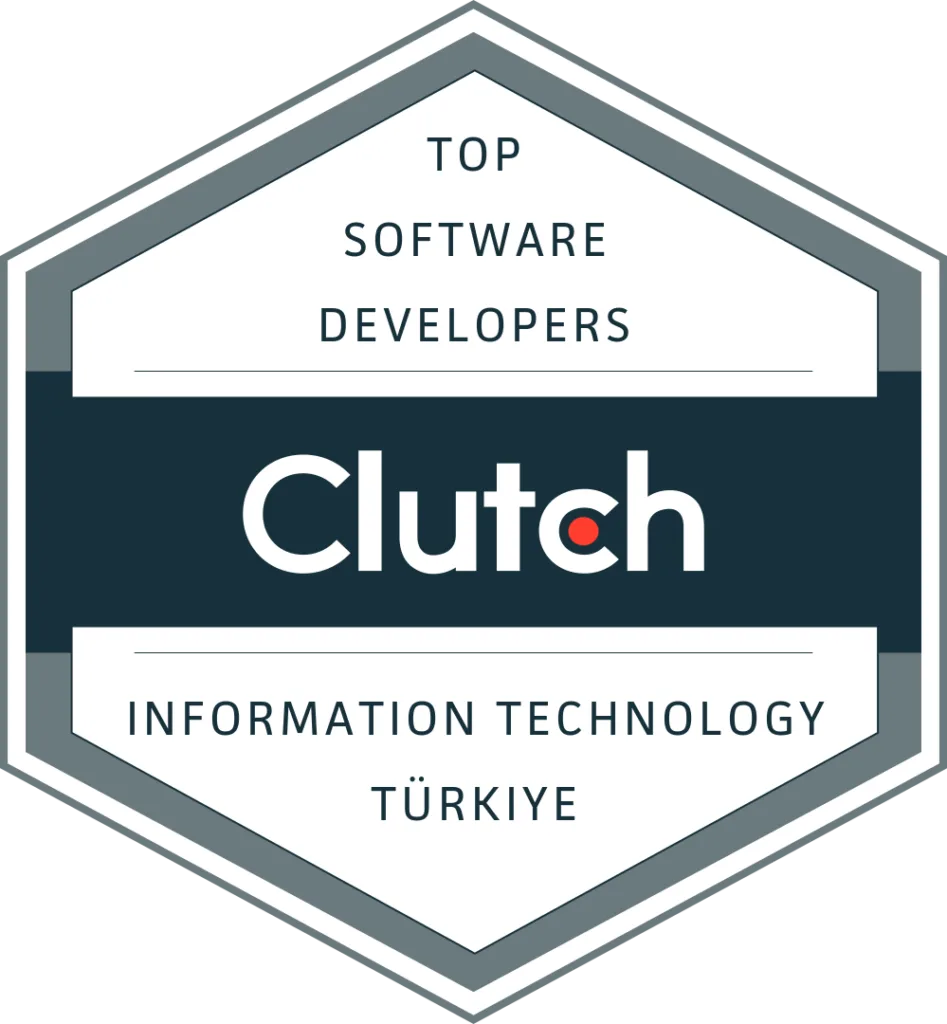In the ever-evolving landscape of technology, the fusion of software development and artificial intelligence has become the cornerstone of innovation. “Mastering the Future: Unleashing the Power of Software Development for Artificial Intelligence” delves into the dynamic realm where coding prowess meets the limitless possibilities of AI. This article serves as a guide for tech enthusiasts and industry professionals looking to harness the potential of these cutting-edge technologies.
As we navigate through the intricacies of machine learning algorithms and neural networks, the synergy between software development and AI emerges as a catalyst for groundbreaking solutions. Stay ahead of the curve as we explore the strategies, tools, and best practices essential for mastering this transformative convergence. Join us on a journey to unravel the true power of software development in shaping the future of artificial intelligence.
In the ever-evolving landscape of technology, the fusion of software development and artificial intelligence has become the cornerstone of innovation. “Mastering the Future: Unleashing the Power of Software Development for Artificial Intelligence” delves into the dynamic realm where coding prowess meets the limitless possibilities of AI. This article serves as a guide for tech enthusiasts and industry professionals looking to harness the potential of these cutting-edge technologies.
As we navigate through the intricacies of machine learning algorithms and neural networks, the synergy between software development and AI emerges as a catalyst for groundbreaking solutions. Stay ahead of the curve as we explore the strategies, tools, and best practices essential for mastering this transformative convergence. Join us on a journey to unravel the true power of software development in shaping the future of artificial intelligence.
Understanding Artificial Intelligence (AI) and Software Development
Artificial Intelligence (AI) has emerged as a revolutionary force in the tech landscape, fundamentally altering how we interact with machines and process information. At its core, AI refers to the simulation of human intelligence in machines programmed to think, learn, and adapt. This encompasses various subfields, including machine learning, natural language processing, and robotics. As these technologies continue to evolve, their intersection with software development becomes increasingly pronounced, paving the way for innovative solutions across industries. The symbiosis between AI and software development not only enhances the functionality of applications but also enables developers to create smarter systems that can analyze data, predict outcomes, and automate tasks.
Software development serves as the backbone of AI applications, providing the frameworks and languages necessary to build intelligent systems. Developers leverage programming languages like Python, Java, and R to implement algorithms that enable machines to learn from data. This process involves gathering and preprocessing data, selecting appropriate models, training algorithms, and fine-tuning parameters to achieve optimal performance. As the demand for AI solutions grows, the need for skilled software developers who understand both the technical and conceptual aspects of AI becomes critical. This understanding not only fosters innovation but also helps in addressing the complexities associated with developing AI-driven applications.
Moreover, the integration of AI into software development processes enhances productivity and efficiency. AI tools can assist in code generation, error detection, and even project management, allowing developers to focus on higher-level design and problem-solving. The collaboration between AI and software development creates a feedback loop where developers can refine their skills and methodologies, ultimately leading to the creation of more robust and scalable applications. This ongoing evolution underscores the importance of mastering both AI concepts and software development practices for anyone looking to thrive in the technology sector.
The Role of Software Development in AI
Software development plays a pivotal role in the realization of AI applications, acting as the conduit through which algorithms and data interact to produce intelligent behavior. One of the primary functions of software development in AI is implementing machine learning algorithms, which require extensive coding and debugging to ensure accuracy and efficiency. Developers must choose the right algorithm based on the problem at hand, whether it’s supervised learning for classification tasks or unsupervised learning for clustering data. This decision-making process is critical, as it directly impacts the performance of the AI system and its ability to deliver meaningful insights.
In addition to algorithm implementation, software development encompasses the creation of user interfaces and experiences that facilitate interaction with AI systems. Developers are tasked with designing intuitive interfaces that allow users to engage with AI features seamlessly. This requires an understanding of both front-end and back-end development, as well as an appreciation for user experience design. The ability to translate complex AI functionalities into accessible features can significantly enhance user adoption and satisfaction, making the role of software developers indispensable in the AI landscape.
Furthermore, software development contributes to the scalability and maintainability of AI systems. As AI applications grow in complexity and user base, developers must ensure that the underlying software architecture can handle increased loads and adapt to changing requirements. This involves implementing best practices in coding, utilizing version control systems, and adopting agile methodologies to facilitate continuous integration and deployment. By focusing on these aspects, software development not only supports the initial deployment of AI solutions but also ensures their longevity and relevance in an ever-changing technological environment.
Impact of AI on Software Development
The advent of AI technologies has had a profound impact on the software development lifecycle, introducing new paradigms and methodologies that streamline processes and enhance productivity. One significant change is the rise of automated coding tools powered by AI, which can generate code snippets, suggest optimizations, and detect bugs in real-time. These tools leverage machine learning models trained on vast amounts of code to assist developers in writing cleaner and more efficient code. As a result, developers can focus on higher-level tasks, reducing the time spent on mundane coding activities and enhancing overall efficiency.
AI also influences project management and collaboration within development teams. AI-driven analytics can provide insights into team performance, project timelines, and resource allocation, allowing for more informed decision-making. By analyzing data from past projects, AI can predict potential roadblocks and suggest adjustments to keep projects on track. This capability fosters a more agile development environment, where teams can respond quickly to changes and challenges, ultimately leading to better outcomes and higher-quality software.
Moreover, AI enhances the testing and quality assurance phases of software development. Traditional testing methods often rely on manual processes that can be time-consuming and prone to human error. AI-powered testing tools can automate the generation of test cases, simulate user interactions, and analyze software performance under various conditions. This not only accelerates the testing process but also increases the reliability of the software, ensuring that AI systems function as intended in real-world scenarios. The incorporation of AI into testing practices represents a significant shift towards more rigorous and efficient quality assurance methodologies.
Tools and Technologies for AI Software Development
The landscape of AI software development is enriched by a myriad of tools and technologies designed to facilitate the creation and deployment of intelligent applications. One of the most popular frameworks is TensorFlow, an open-source library developed by Google that simplifies the process of building machine learning models. TensorFlow provides a comprehensive ecosystem for designing, training, and deploying models, making it accessible for both beginners and experienced developers. With its extensive documentation and community support, TensorFlow has become a go-to choice for many AI projects.
Another prominent tool in the AI development arsenal is PyTorch, which has gained traction for its dynamic computation graph and ease of use. Developed by Facebook’s AI Research lab, PyTorch allows developers to build and modify neural networks on-the-fly, providing greater flexibility during the development process. Its intuitive interface and strong support for GPU acceleration make it a favored choice for researchers and practitioners alike, particularly in the field of deep learning. By offering robust features for experimentation, PyTorch empowers developers to push the boundaries of AI research and application.
In addition to these frameworks, a variety of libraries and platforms exist to support specific AI needs. For instance, scikit-learn is widely used for traditional machine learning tasks, offering a range of algorithms for classification, regression, and clustering. Natural Language Processing (NLP) tasks can be tackled with libraries such as spaCy and NLTK, which provide powerful tools for text processing and analysis. Furthermore, cloud-based platforms like Google Cloud AI and Microsoft Azure AI enable developers to leverage scalable resources and pre-built models, accelerating the development process and reducing infrastructure overhead. The diverse array of tools available empowers developers to select the best-fit solutions for their AI projects, driving innovation and efficiency.
Best Practices for Developing AI Software
To successfully develop AI software, adhering to best practices is crucial for ensuring quality, scalability, and maintainability. One key practice is to prioritize data quality and preprocessing. Since AI models rely heavily on data for training, the integrity and relevance of the data used can significantly impact model performance. Developers should implement robust data cleaning, normalization, and augmentation techniques to ensure that the data is representative of the problem domain. Additionally, understanding the ethical implications of data usage is essential, as biases in data can lead to skewed results and unintended consequences in AI applications.
Another important best practice is to embrace an iterative development process. AI development often involves experimentation and fine-tuning to achieve optimal results. By adopting agile methodologies, developers can continuously refine their models based on feedback and performance metrics. This iterative approach allows teams to pivot quickly in response to new insights or changing requirements, fostering a culture of innovation and adaptability. Regularly reviewing and updating models ensures that they remain relevant and effective as new data becomes available.
Finally, collaboration and communication among team members are vital for successful AI software development. Interdisciplinary teams consisting of data scientists, software engineers, and domain experts can bring diverse perspectives and expertise to the table. This collaboration fosters a holistic understanding of the problem being addressed and promotes the sharing of knowledge and best practices. Implementing tools for version control and project management can further enhance collaboration, enabling teams to work cohesively towards common goals and streamline the development process.
Challenges in AI Software Development
Despite its potential, AI software development is fraught with challenges that developers must navigate to create effective solutions. One of the most significant obstacles is the complexity of AI algorithms and models. Understanding the intricacies of machine learning and deep learning requires a solid foundation in mathematics and statistics, which can be daunting for many developers. Moreover, the rapid pace of advancements in AI technologies necessitates continuous learning and adaptation, making it challenging for professionals to stay current with the latest methodologies and tools.
Data-related challenges also pose significant hurdles in AI development. Acquiring high-quality, labeled datasets can be time-consuming and costly, particularly in specialized domains where data may be scarce. Additionally, issues related to data privacy and security are paramount, as developers must ensure compliance with regulations such as GDPR while handling sensitive information. Developing AI systems that are robust against adversarial attacks or biased outcomes further complicates the data landscape, requiring careful consideration and validation throughout the development process.
Furthermore, the deployment and integration of AI systems into existing infrastructure can be a formidable challenge. Many organizations struggle with the transition from pilot projects to full-scale implementations, often encountering resistance from stakeholders or technical limitations. Ensuring that AI applications are scalable and can interact seamlessly with legacy systems requires careful planning and execution. Developers must also consider the operationalization of AI models, including monitoring and maintenance, to ensure continued performance and reliability in dynamic environments.
The Future of AI Software Development
The future of AI software development holds immense promise, driven by rapid advancements in technology and an increasing demand for intelligent solutions across various sectors. As AI becomes more ingrained in everyday applications, developers will be tasked with creating systems that are not only powerful but also ethical and transparent. The emphasis on explainable AI is expected to grow, pushing developers to design models that provide clear insights into their decision-making processes. This shift towards transparency will enhance user trust and acceptance, paving the way for broader AI adoption.
Moreover, the rise of edge computing is set to transform the landscape of AI development. By processing data closer to the source rather than relying solely on centralized cloud systems, edge computing can reduce latency and improve real-time decision-making capabilities. This trend will enable the development of AI applications in areas such as autonomous vehicles, smart cities, and Internet of Things (IoT) devices, where immediate responses are crucial. Developers will need to adapt their skills and tools to harness the power of edge computing and create efficient, responsive AI systems.
Finally, the convergence of AI with other emerging technologies, such as blockchain and augmented reality, will unlock new possibilities for innovation. Developers will explore how these technologies can complement each other to create novel solutions that address complex challenges. For instance, blockchain can enhance the security and traceability of AI algorithms, while augmented reality can provide immersive experiences powered by AI insights. The fusion of these technologies will require developers to think creatively and collaboratively, fostering a new era of intelligent applications that redefine how we interact with the world.
Training and Education for AI Software Development
As the demand for AI software development continues to rise, access to quality training and education becomes increasingly essential. Aspiring developers and industry professionals should seek out comprehensive educational programs that cover both foundational and advanced concepts in AI and software development. Many universities and online platforms offer specialized courses in machine learning, deep learning, and AI ethics, providing learners with the knowledge and skills necessary to succeed in this rapidly evolving field. These programs often combine theoretical knowledge with practical applications, enabling students to gain hands-on experience in building AI models and applications.
Moreover, the importance of continuous learning cannot be overstated in the realm of AI software development. Given the fast-paced nature of technological advancements, professionals must stay updated with the latest trends, tools, and methodologies. Participating in workshops, webinars, and industry conferences can provide valuable insights and networking opportunities, helping developers connect with peers and experts in the field. Engaging with online communities and forums dedicated to AI can also foster collaborative learning and knowledge sharing, further enhancing professional growth.
Additionally, mentorship and collaboration play a crucial role in developing expertise in AI software development. Experienced developers can provide guidance and support to newcomers, helping them navigate challenges and offering insights into best practices. Encouraging a culture of knowledge-sharing within organizations promotes skill development and fosters a collaborative environment where innovative ideas can flourish. By investing in training and education, both individuals and organizations can equip themselves for the future of AI software development.
AI Software Development Services
The growing complexity and demand for AI solutions have led to the emergence of specialized AI software development services. These services cater to organizations looking to leverage AI technologies without the need to build an in-house team from scratch. AI software development firms offer a range of services, including consulting, custom application development, and system integration. By partnering with these experts, businesses can access the necessary skills and resources to implement AI solutions effectively and efficiently.
Custom AI application development services allow organizations to tailor solutions specifically to their needs. From predictive analytics to natural language processing applications, these services encompass a wide array of use cases across different industries. Development firms often utilize proven methodologies and state-of-the-art tools to ensure high-quality deliverables that align with client expectations. By collaborating with experienced developers, organizations can accelerate their AI initiatives and achieve their desired outcomes more quickly.
Additionally, AI software development services often include ongoing support and maintenance, which are crucial for the long-term success of AI applications. Continuous monitoring, updates, and optimization ensure that AI systems remain effective and relevant in a dynamic environment. This comprehensive approach allows businesses to focus on their core operations while relying on specialized expertise to manage and enhance their AI capabilities. As the demand for AI-driven solutions continues to grow, the role of AI software development services will be pivotal in supporting organizations on their journey toward digital transformation.
Conclusion
In conclusion, the intersection of software development and artificial intelligence represents a transformative force in the technology landscape. As we have explored, understanding the foundational concepts of AI and the role of software development is crucial for harnessing the full potential of these technologies. The impact of AI on software development practices, coupled with the emergence of powerful tools and technologies, has revolutionized how applications are built and deployed.
Adhering to best practices while navigating the challenges of AI software development is essential for creating effective and scalable solutions. The future of AI development holds exciting possibilities, driven by innovations in edge computing and the convergence of AI with other emerging technologies. Continuous learning and access to quality training will be vital for professionals seeking to thrive in this dynamic field.
As organizations increasingly seek to leverage AI capabilities, specialized AI software development services will play a crucial role in supporting their initiatives. By fostering collaboration and knowledge sharing, we can collectively shape the future of AI software development, unlocking new opportunities for innovation and growth. Embracing this transformative journey will empower developers and organizations alike to master the future and unleash the true power of artificial intelligence.






